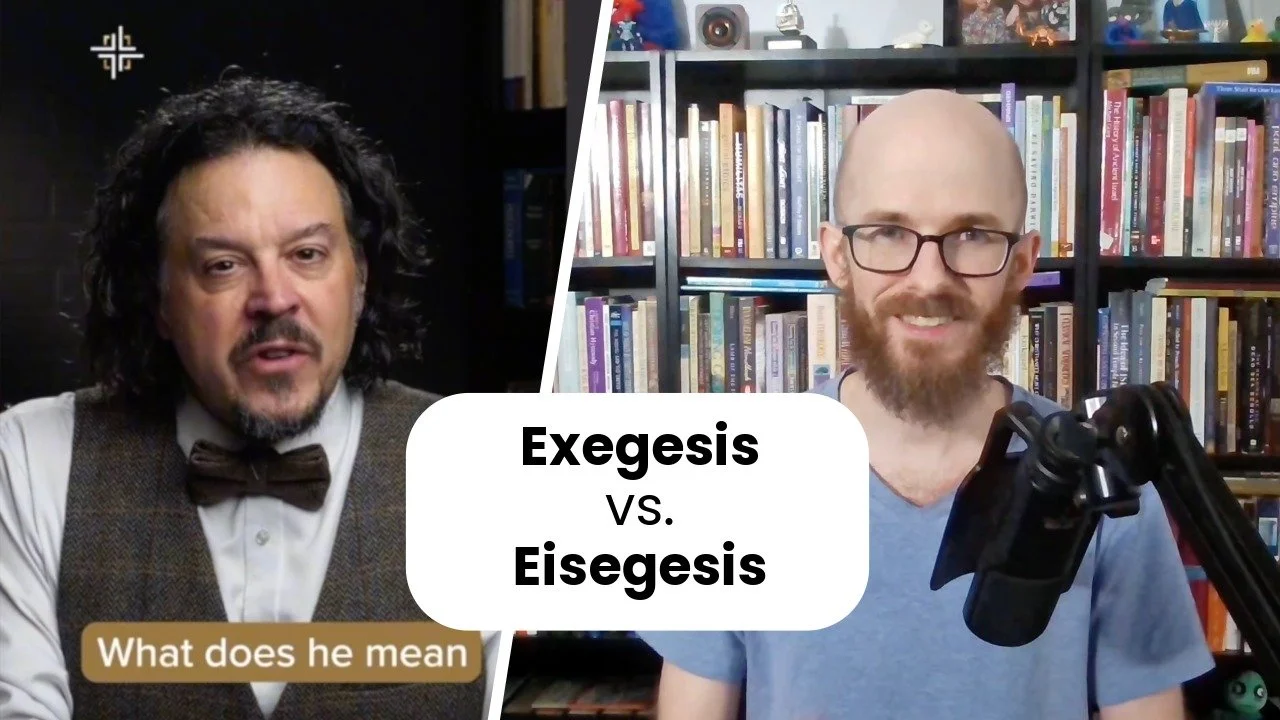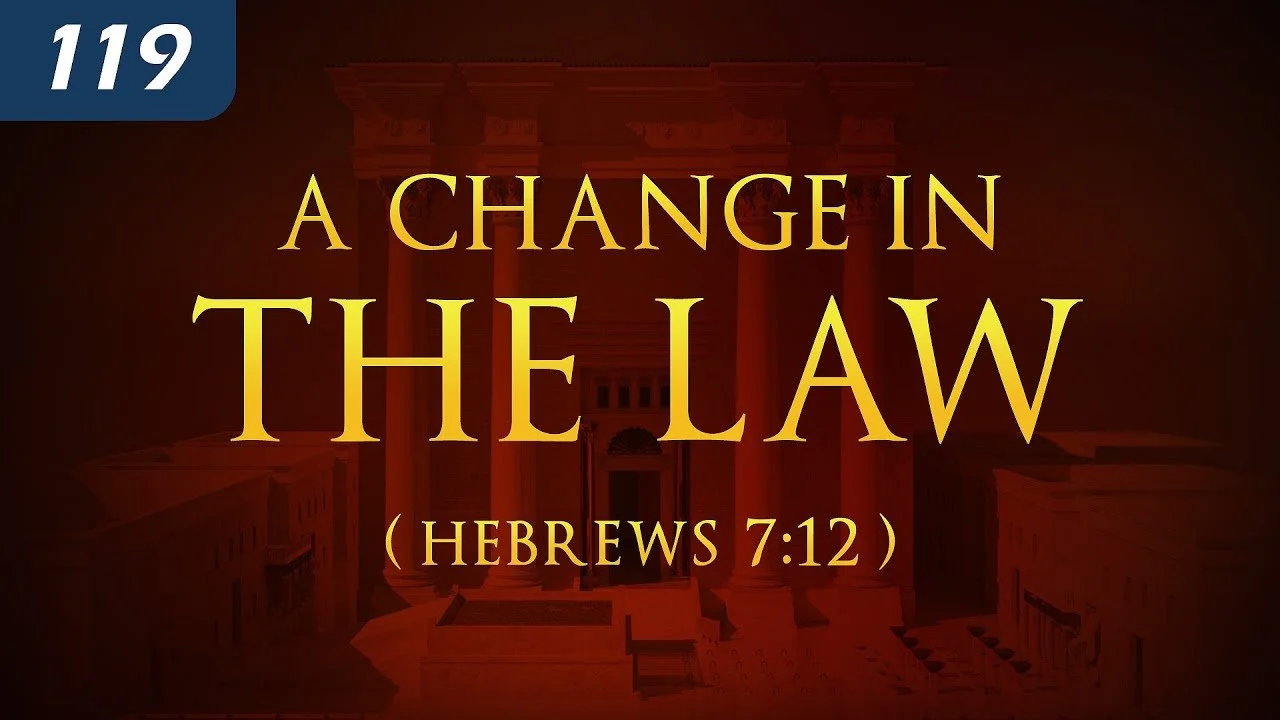What is Pronomian Theology?
Pronomian theology, or pronomianism, is a way of reading Scripture that affirms the ongoing authority of God’s Law given through Moses (Torah). In this video, we explore how pronomianism contrasts with antinomianism and how various Christian communities like Messianic Judaism and the Seventh Day Baptists approach the Torah today. If you’ve ever wondered about the relevance of commandments such as the Sabbath, festivals, and food laws in Christian ethics, this short video will give you a basic introduction to pronomian theology.
Transcript
What is pronomian theology, or pronomianism? In short, it is a theology and way of reading Scripture that relates to the question of whether the Torah, or the Law of Moses, still applies to believers today.
A good way to understand pronomianism is by contrasting it with another, more familiar term: antinomianism. Generally speaking, antinomianism takes a negative stance toward the Law in its interpretation of Scripture. That is, antinomian theology ultimately rejects the ongoing relevance and authority of the Law of Moses. Pronomianism, by contrast, takes a positive stance toward the Law in its interpretation of Scripture. That is, pronomian theology ultimately affirms the ongoing relevance and authority of the Law of Moses.
When considering the place of the Torah in Christian ethics, we can think of these two positions as representing opposite ends of a spectrum. There are those on the “antinomian” side of the spectrum who teach that the Law of Moses is no longer binding but has been replaced by the commands in the New Testament. However, this is an extreme view that has been rejected by the vast majority of Christians throughout history. Most Christians have always believed that the Law of Moses remains in effect to some extent, and would thus fall somewhere in between the two ends of the spectrum.
For instance, the Reformed tradition generally holds a high view of the so-called “moral law.” So, the Torah’s commandments against things like adultery, murder, and fraud are seen as binding. This reflects a pronomian stance toward those commandments of the Law. At the same time, the Reformed tradition often dismisses other laws, such as the seventh day Sabbath. Such commandments are labeled “ceremonial” and therefore deemed no longer applicable. This reflects an antinomian stance. While rejecting the relevance of a command like the Sabbath does not make someone an antinomian in the strictest sense, it is still an antinomian position in that particular case. Overall, the Reformed tradition’s teaching on the Law of Moses is mixed: neither fully pronomian nor fully antinomian.
There are other denominations and traditions that are closer to the “pronomian” side of the spectrum. For instance, consider the Seventh Day Baptists, who have a long history of Sabbath observance dating back to the early Reformation. There is also Messianic Judaism, which generally teaches that the Sabbath, festivals, and food laws are still binding today.
However, pronomian theology is not tied to any denomination. It is a hermeneutic, a way of approaching Scripture. Personally, I have found a home in Messianic Judaism, which I believe provides a strong foundation for cultivating a pronomian theology within the body of Messiah. Still, you don’t need to join a Messianic congregation to embrace a pronomian theology and lifestyle. For example, you could continue attending your Methodist church on Sunday while observing the Sabbath at home from Friday evening to Saturday evening. I’ve also known several entire churches that have embraced a pronomian theology—they started meeting on the Sabbath as a community and celebrating the festivals and observing the food laws, all while remaining a distinctly non-denominational Christian church. So, you don’t need to join a particular group or denomination to be pronomian.
Pronomian theology is also not inherently tied to other theological views. For instance, both continuationists and cessationists may hold to pronomian theology. Similarly, both premillennialists and postmillennialists can embrace a pronomian theology. Other examples could be mentioned. While a pronomian reading of Scripture may influence one’s views in other areas of theology, and may incline individuals toward certain perspectives over others, adopting pronomianism does not require someone to adopt any other unrelated theological position.
Again, pronomianism simply means that you read the Bible a certain way—specifically, you read the Bible as affirming the ongoing authority of the commandments found in the Law of Moses.
So, in summary, when we say that we hold to pronomian theology, what we mean is that we interpret Scripture as upholding the Torah’s relevance for Christian ethics. We strive to understand how the commandments in Scripture apply today, and we try to walk that out. Also, most of us who identify as “pronomian” in our theology believe that even commandments like the Sabbath, festivals, and food laws should be kept literally. We hold to this theological position because we believe the Bible teaches that God’s Law given through Moses remains in effect.
About David Wilber
David is first and foremost a passionate follower of Yeshua the Messiah. He is also a writer, speaker, and teacher.
David’s heart is to minister to God’s people by helping them rediscover the validity and blessing of God’s Torah and help prepare them to give an answer to anyone who asks about the hope within them (1 Peter 3:15)…































